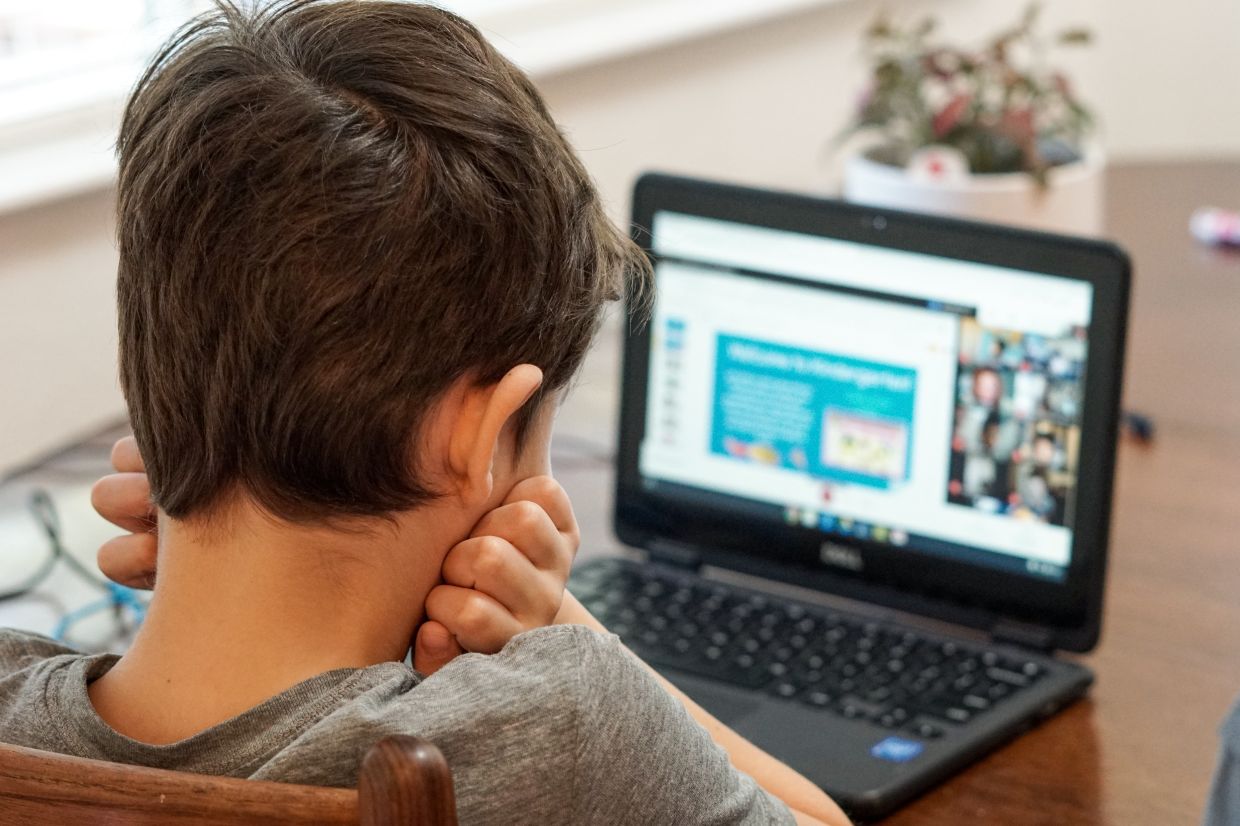Why Is Therapy Crucial for Child Behavioral Problems?
Therapy is essential for child behavioral problems as it provides tailored interventions, guidance, and support for positive changes and long-term well-being. With early intervention, therapists help in understanding your child’s needs, triggers, and behaviors, leading to effective emotional regulation. Collaborating with schools and involving parents guarantees consistent support and positive outcomes. Through evidence-based approaches and coping skill development, therapy equips your child with tools to manage emotions effectively. The therapist plays a key role in guiding the treatment process and fostering resilience. Remember, therapy offers valuable support for shaping positive behavioral patterns and enhancing your child’s development.
Key Takeaways
- Early intervention supports healthy development.
- Therapists offer tailored strategies for behavior modification.
- Therapy enhances emotional regulation skills.
- Consistent sessions reinforce positive changes.
- Parental involvement ensures continuity and progress.
Understanding Child Behavior Challenges

Understanding child behavior challenges is essential for parents and caregivers to effectively support and guide their children through difficult times. Parental involvement plays an important role in addressing these challenges. By being actively engaged in your child’s life, you can better understand their needs, triggers, and behaviors. This involvement allows you to implement behavior modification strategies that promote positive changes and help your child navigate through tough situations.
In addition to parental involvement, school support is another key factor in addressing child behavior challenges. Collaborating with teachers and school counselors can provide valuable insights into your child’s behavior in different environments. Working together, parents and schools can create a consistent approach to support the child’s emotional regulation and overall well-being.
Emotional regulation is a fundamental skill that children need to learn to manage their behavior effectively. By understanding your child’s emotional triggers and helping them develop healthy coping mechanisms, you can empower them to navigate through challenging situations with resilience and confidence.
Benefits of Early Intervention

You know the importance of catching behavioral challenges early in children.
Early intervention can make a significant difference in their development and overall well-being.
Timely therapy can have a positive impact on their future success and happiness.
Early Intervention Advantages
By intervening early in a child’s life, the benefits of addressing behavioral problems promptly and effectively can have a lasting positive impact on their development and overall well-being.
Parent involvement plays a vital role in early intervention. When parents actively participate in therapy sessions, they gain valuable skills and techniques to support their child’s behavioral progress at home. This involvement fosters a supportive environment that reinforces the strategies learned during therapy sessions, leading to more significant improvements in the child’s behavior.
Moreover, school support is another essential component of early intervention. Collaborating with teachers and school counselors can help identify behavioral issues early on and implement tailored strategies to address them effectively. School support promotes consistency between home and educational settings, creating a holistic approach to managing the child’s behavioral problems.
Impact of Timely Therapy
To further appreciate the significance of addressing behavioral problems early on, consider the profound impact timely therapy can have on a child’s development and well-being. When parents actively engage in therapy sessions, offering support and reinforcement at home, the effectiveness of the intervention greatly improves. Your involvement in your child’s therapy not only demonstrates your commitment but also enhances the outcomes by providing a consistent environment for them to thrive.
Moreover, with school support and collaboration with therapists, your child’s progress in therapy can be closely monitored and tailored to suit their specific needs. School professionals can offer insights into your child’s behavior within the educational setting, aiding therapists in creating targeted strategies for improvement.
Role of Therapist in Treatment
During therapy for child behavioral problems, the therapist plays an essential role in guiding the treatment process and supporting both the child and their family. The therapist provides vital support by implementing tailored intervention strategies to address the child’s specific behavioral issues. Through their expertise and experience, therapists offer valuable insights and techniques to help the child navigate their emotions and behaviors effectively.
Moreover, therapist collaboration and family involvement are key components of successful therapy outcomes. Therapists work closely with the child’s family to create a supportive environment both during and outside of therapy sessions. By involving the family in the treatment process, therapists can guarantee that the child receives consistent support and reinforcement at home, enhancing the effectiveness of the therapy.
Evidence-Based Therapeutic Approaches
In therapy for child behavioral problems, integrating evidence-based therapeutic approaches is vital for achieving positive and lasting outcomes. Parent involvement plays a significant role in the success of therapy sessions. By actively participating in the therapeutic process, parents can better understand their child’s challenges and learn effective strategies to support their child outside of therapy sessions.
Therapeutic techniques such as play therapy offer children a safe and comfortable space to express themselves and work through their emotions. Through play, children can communicate their thoughts and feelings in a way that feels natural to them, aiding in the therapeutic process.
Additionally, cognitive behavioral therapy focuses on identifying and changing negative thought patterns and behaviors, empowering children with the tools to manage their emotions and reactions effectively.
Building Coping Skills and Resilience

How can children develop coping skills and resilience to navigate challenges effectively in therapy for child behavioral problems?
One important aspect is helping them with emotional regulation. Through therapy, children can learn to identify and manage their emotions in healthier ways, enabling them to cope with difficult situations more effectively. Therapists provide tools and strategies to help children express and regulate their feelings, fostering resilience in the face of adversity.
Positive reinforcement also plays a significant role in building coping skills and resilience. In therapy, children are praised and rewarded for using their coping mechanisms and showing resilience in challenging circumstances. This positive feedback helps to reinforce these adaptive behaviors, encouraging children to continue utilizing their coping skills even outside of therapy sessions.
Long-Term Impact on Child Development
As you continue to explore therapy for your child’s behavioral problems, it’s important to contemplate the long-term impact on their development.
Therapy can play a significant role in helping your child achieve important developmental milestones and establish healthier behavioral patterns.
Developmental Milestones and Therapy
Guiding through developmental milestones with the support of therapy can have a profound and lasting impact on your child’s overall growth and well-being. Parental involvement is key in therapy sessions focusing on developmental milestones. By actively participating in these sessions, you not only strengthen the bond with your child but also gain valuable skills to support their progress outside of therapy.
Therapy techniques tailored to address specific developmental goals can greatly enhance your child’s ability to reach important milestones. The therapy progress made in these sessions can positively influence family dynamics, fostering a supportive environment that nurtures your child’s development.
Understanding the importance of therapy in guiding your child through developmental milestones is vital. The impact goes beyond just achieving these goals; it lays the foundation for long-term growth and well-being. By actively engaging in therapy and incorporating the techniques learned into your daily interactions, you can create a supportive and enriching environment that propels your child towards a successful developmental journey.
Behavioral Patterns and Therapy
Maintaining consistency in therapy sessions can greatly impact your child’s long-term behavioral development. When you actively engage in your child’s therapy sessions and show consistent support, you create a stable environment for them to explore their behavioral patterns and work towards positive changes.
Your involvement as a parent is essential in reinforcing the strategies and techniques learned in therapy sessions, helping your child apply them in their daily life. By participating in therapy alongside your child, you not only provide them with a sense of security but also model healthy behaviors and coping mechanisms.
Cognitive restructuring, a key component of therapy, helps your child identify and challenge negative thought patterns that contribute to their behavioral issues. Through consistent therapy sessions, your child can learn to reframe their thoughts, develop healthier coping mechanisms, and ultimately improve their behavior over the long term.
Your support and active involvement in their therapy journey play an important role in shaping their behavioral patterns and fostering positive development.
Frequently Asked Questions
How Can Parents Support Therapy Outside of Sessions?
To support therapy outside of sessions, parents must be involved. Track progress, reinforce consistently, and implement behavior modifications. Your active participation is key to your child’s success in therapy and overall well-being.
Are There Any Alternative Therapies for Child Behavior Problems?
When helping a child with behavior issues, consider alternative therapies like play therapy and art therapy. Both can provide unique ways for children to express themselves, work through emotions, and develop important coping skills.
What Qualifications Should a Child Therapist Have?
When seeking a child therapist, verify that they hold proper qualifications and experience. Look for credentials like a Master’s degree in psychology or counseling. Effective child therapy techniques include play therapy, cognitive-behavioral therapy, and family therapy.
Can Therapy Help With Academic Performance in Children?
Therapy can greatly enhance academic performance in children by providing school support and utilizing therapeutic techniques. It helps address underlying issues affecting learning, boosts confidence, and equips them with coping strategies for success.
Are There Any Support Groups for Parents of Children in Therapy?
As a parent managing therapy for your child, seek parental guidance and coping strategies from support groups. Connect with community resources for peer support to help you handle this journey with understanding and strength.
Conclusion
Ultimately, therapy plays a pivotal role in helping children overcome behavioral challenges by providing early intervention, building coping skills, and fostering resilience.
Therapists offer evidence-based approaches that can have a long-term impact on a child’s development.
Remember, seeking help isn’t a sign of weakness but a proactive step towards supporting your child’s well-being.
Together, with the guidance of a therapist, you can help your child navigate through their challenges and thrive.

Chad Adan Kace, a young dad from Vermont, shares his parenting journey with a touch of humor and lots of love. Father to a lively baby, he explores the joys and challenges of fatherhood through his stories.







